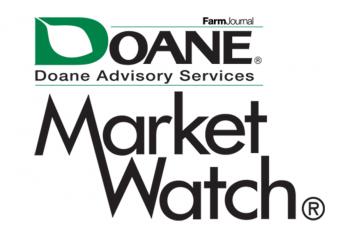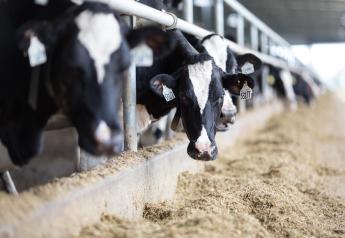Evening Report | February 2, 2024

Check our advice monitor on ProFarmer.com for updates to our marketing plan.
Your Pro Farmer newsletter is now available... Corn futures ended January on a whimper, marking the worst start to the year since 2015. Soybean futures posted their worst January performance since 1984. Funds are heavily short both markets and February historically favors bulls, though neither market is showing signs of a low. It could take increased South American crop stress to trigger a short-covering rally. The cattle market got a boost from the bullish Cattle Inventory Report that showed the U.S. cattle herd contracted further in 2023 — and will continue to do so. On the economic front, the Fed kept interest rates unchanged but gave no indications a rate cut is coming in March, as many anticipated. The major U.S. equity indexes started 2024 with a bang, recently surging to all-time highs. Multiple signs point to this being a positive year for the stock market. Our News page 4 feature this week is a list of key issues farmers and ag industry officials are talking/asking about. We cover all of these items and much more in this week’s newsletter, which you can access here. ADD LINK >>>>>>>>>>>>>>>
Exchange warns of Argentine crop stress from hot, dry conditions... A dry heat wave in Argentina has prompted warnings over growing conditions for the country’s corn and soybean crops that are in the important reproductive stage. “First class soybeans were doing very well until this week when the heat began and the lack of rain began to show itself in lower quality lots,” the Rosario Grain Exchange said in a report, adding this was happening across much of the core region. “The prospect of a great campaign begins to fade and the first link that gives way is the low-quality soils, where there is marked stress and loss of yield.”
The exchange added that the hot weather had seen soybeans rated in “very good to excellent” condition drop to 65% from 90%, with 10% “fair and bad.”
The Buenos Aires Grain Exchange was more optimistic, still rating the soybean crop 90% “normal/excellent,” though it noted “precipitation will be necessary” to maintain that level.
El Niño set for resurgence?... Crop stress will build across most of Argentina as recent heat and dryness persist next week. Western and southern Brazil will also remain dry. Forecasts suggest rains will return to western and southern Brazil by the end of next week and Argentina the following week.
BAM Weather says El Niño is set to rebuild during the next three months, which would produce conditions similar to the October-December timeframe — generally favorable weather across most of Argentina but heat and dryness in central Brazil. That would not be favorable for Brazil’s safrinha corn crop.
China replacing corn with sorghum... China’s 2023-24 export commitments (accumulated exports + outstanding sales) for U.S. corn are down 2.5 million metric tons (MMT) from year-ago, but they are up 3.5 MMT for sorghum. With China no longer having incentive via the Phase 1 trade agreement to actively buy U.S. corn, end-users have increasingly turned to sorghum for feedgrain needs. While China is the world’s largest importer, sorghum purchases more easily escape market attention.
Jobs growth surges in January... The U.S. economy added 353,000 non-farm payrolls in January, roughly double what economists anticipated. December payrolls were also revised sharply higher and hourly earnings rose 4.5% over the past year. The stronger-than-expected jobs market gives the Fed more time before cutting rates. Markets now expect the Fed to continue its monetary policy pause in March and reflect around a 60% chance of a rate cut in May, down from 90% prior to the employment data.
Consumer sentiment surges in January... Consumer sentiment surged 13% to reach its highest level since July 2021, according to the University of Michigan’s Surveys of Consumers, reflecting improvements in the outlook for both inflation and personal incomes. January’s gain was only exceeded five times since 1978. Consumers expressed gains in their views on their personal finances as well as the macroeconomy, while the short-run business outlook soared 27%.
Surveys of Consumers Director Joanne Hsu said, “After reserving judgment last fall about whether the slowdown in inflation would persist, consumers now feel assured that inflation will continue to soften. Sentiment has resumed the upward trajectory from the all-time low measured in June of 2022, which had stalled in the late summer and fall of 2023. However, consumers expressed considerable disagreement about the future of the economy. About 41% of consumers expect good times in the year ahead for business conditions, while 48% expect bad times. This still represents a vast improvement over the past year and a half; in June of 2022, a whopping 79% of consumers expected challenging times ahead for the economy. Sentiment is now 7% below the historical average since 1978.”
Year-ahead inflation expectations eased to 2.9%, down from 3.1% in December and 4.5% in November. The current reading is the lowest since December 2020. Long-run inflation expectations were unchanged at 2.9%.
White House urges grocery stores to cut prices... The Biden administration is taking aim at grocery chains, suggesting they lower prices as their costs decline. “Our message is a very clear one that the president has and will continue to lean into, which is, if you’re a company whose input prices have come down and you’re not passing those savings along to the consumer, he will call you out,” said Jared Bernstein, the chair of President Joe Biden’s Council of Economic Advisers. “We've seen elevated (profit) margins, particularly in the grocery sector, and have taken note that there needs to be more pass-through there (to consumers).”
A White House analysis of Census data shows food-and-beverage retailers’ revenues as a share of their costs have risen sharply from before the pandemic to a level not seen since the mid-2000s, a measure they say more directly tracks retail mark-ups.
“We’re also working hard to lower costs – actual lower costs, not just lower inflation,” said Bernstein, citing eggs, milk, appliances, airfares, used cars and gas as particularly sensitive areas for Americans.
IMF supports Argentine reforms but warns of persistent risks to loan program... The International Monetary Fund (IMF) expressed support for the reforms initiated by Argentine President Javier Milei, describing them as “bold” and more ambitious than those of previous governments. IMF’s report highlighted Milei’s strong commitment to eliminating fiscal deficits and addressing long-standing obstacles to economic growth. However, the report also warned risks to the $44 billion loan program remain high due to inherited policies and a complex political and social environment, including a fragmented Congress, declining real wages and high poverty rates.
IMF Managing Director Kristalina Georgieva clarified that discussions about a new program with Argentina are not currently underway. Instead, Argentina is working to bring the existing program back on track. IMF recently adjusted its economic forecast for Argentina, expecting a 2.8% contraction in 2024, in contrast to previous expectations of a 2.8% expansion. The loan program has been extended to Dec. 31, with a recent disbursement bringing the total amount within the program to $40.6 billion.






